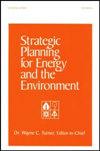结合出行行为的客运模式组合:以尼泊尔加德满都谷地为例
Q3 Environmental Science
Strategic Planning for Energy and the Environment
Pub Date : 2023-02-15
DOI:10.13052/spee1048-4236.4032
引用次数: 0
摘要
发展中国家的大部分旅行需求是由以两轮车为主的私人车辆来满足的,因为它们的可负担性、可达性和可用性,这对能源、经济和环境有直接的影响。为了实现可持续运输,已经实施了诸如电动交通和大众运输选择等政策,这些政策主要侧重于基于技术成本和环境外部性的技术转移。本研究中的交通建模使用了一个额外的属性:旅行时间,它显示了旅行行为对最优模式组合的影响以及由此对能源和排放的影响。基于场景的方法使用旅行时间预算(TTB)概念,使用自下而上的TIMES建模框架。情景分析显示了车辆速度、可用旅行时间和运输可持续性之间的权衡。结果表明,投资快速交通将是加德满都谷地未来潜在的交通方式。本文章由计算机程序翻译,如有差异,请以英文原文为准。
Passenger Transport Modal Mix by Incorporating Travel Behaviour: A Case Study of Kathmandu Valley, Nepal
Most of the travel demand in developing countries is fulfilled by private vehicles dominated by 2-wheelers due to their affordability, accessibility, and availability, which has direct effects on energy, economy, and environment. To achieve sustainable transport, policies such as electric mobility and mass transport options have been implemented which are mainly focused on technology shift based on technology cost and environmental externalities. Transport modelling in this study was carried out using an additional attribute: travel time which shows the impact of travel behaviour on the optimal modal mix and the consequent impact on energy and emissions. The scenario-based approach using the travel time budget (TTB) concept was used using a bottom-up TIMES modelling framework. The scenario analysis shows the trade-off between the speed of the vehicle, available travel time, and sustainability in transport. The result suggests that the investment in rapid transit would be the potential future mode in Kathmandu valley.
求助全文
通过发布文献求助,成功后即可免费获取论文全文。
去求助
来源期刊

Strategic Planning for Energy and the Environment
Environmental Science-Environmental Science (all)
CiteScore
1.50
自引率
0.00%
发文量
25
 求助内容:
求助内容: 应助结果提醒方式:
应助结果提醒方式:


